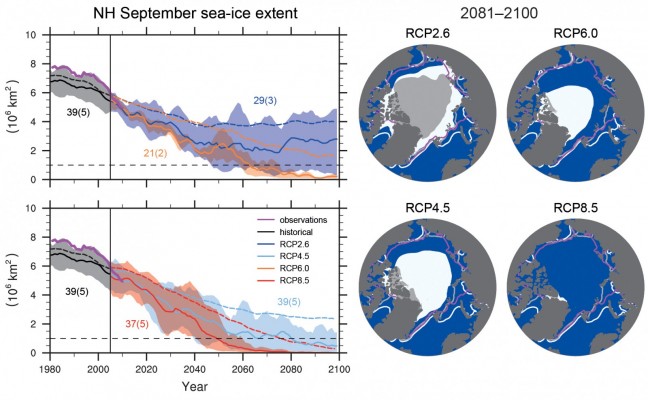
Left: Projection of sea-ice extent in the Northern Hemisphere [NH], for the different scenarios of the IPCC ( RCPs). The dashed lines are the mean of all the models used in the CMIP5 experiment while the solid lines come from a subset of models that fit the observations the best.
Right: maps of multi-model results in 2081-2100. The white and grey coloring result from the ensemble and the subset of models, respectively.
(Credit: IPCC (2013), Assessment Report 5, Working Group I, Technical Summary , Figure TS.17, p92)
The Arctic sea-ice extent has declined in the past 20 years and its future is uncertain. In the end, greenhouse gas emissions will determine the impact on the sea-ice from man-made climate change through radiative forcing (i.e. Representative Concentration Pathways or RCPs). The COP21 can determine the path we will follow and which course we will take to reduce emissions.
Reduction in sea-ice cover ranges from 43% (RCP 2.6) to 94% (RCP 8.5) in the period 2081-2100 compared to 1986-2005.
Why is sea important?
Decrease in sea-ice extent would:
– decrease the albedo of the Arctic ocean, therefore more heat would be absorbed by the ocean which would enhance the warming in this region.
– affect the global oceanic circulation as sea-ice formation influences the density of ice masses, which drives oceanic circulation.
– completely alter the ecosystem in the Arctic.
Further Reading
Stocker, T F, D Qin, G.-K. Plattner, L V Alexander, S K Allen, N L Bindoff, F.-M. Bréon, et al. 2013. “Technical Summary.” In Climate Change 2013: The Physical Science Basis. Contribution of Working Group I to the Fifth Assessment Report of the Intergovernmental Panel on Climate Change, edited by T F Stocker, D Qin, G.-K. Plattner, M Tignor, S K Allen, J Boschung, A Nauels, Y Xia, V Bex, and P M Midgley, 33–115. Cambridge, United Kingdom and New York, NY, USA: Cambridge University Press. doi:10.1017/CBO9781107415324.005.
Read about sea ice and its importance on the NSIDC website
Previous blog posts featuring sea-ice science:
Do beers go stale in the Arctic?
Cruising for mud sediments from the ocean floor
Camping on the Svalbard coast
Image of the Week: Under the sea


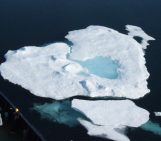
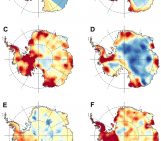
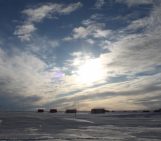
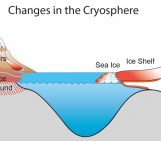
Pingback: Cryospheric Sciences | Image of the week — The warming effect of the decline of Arctic Sea Ice